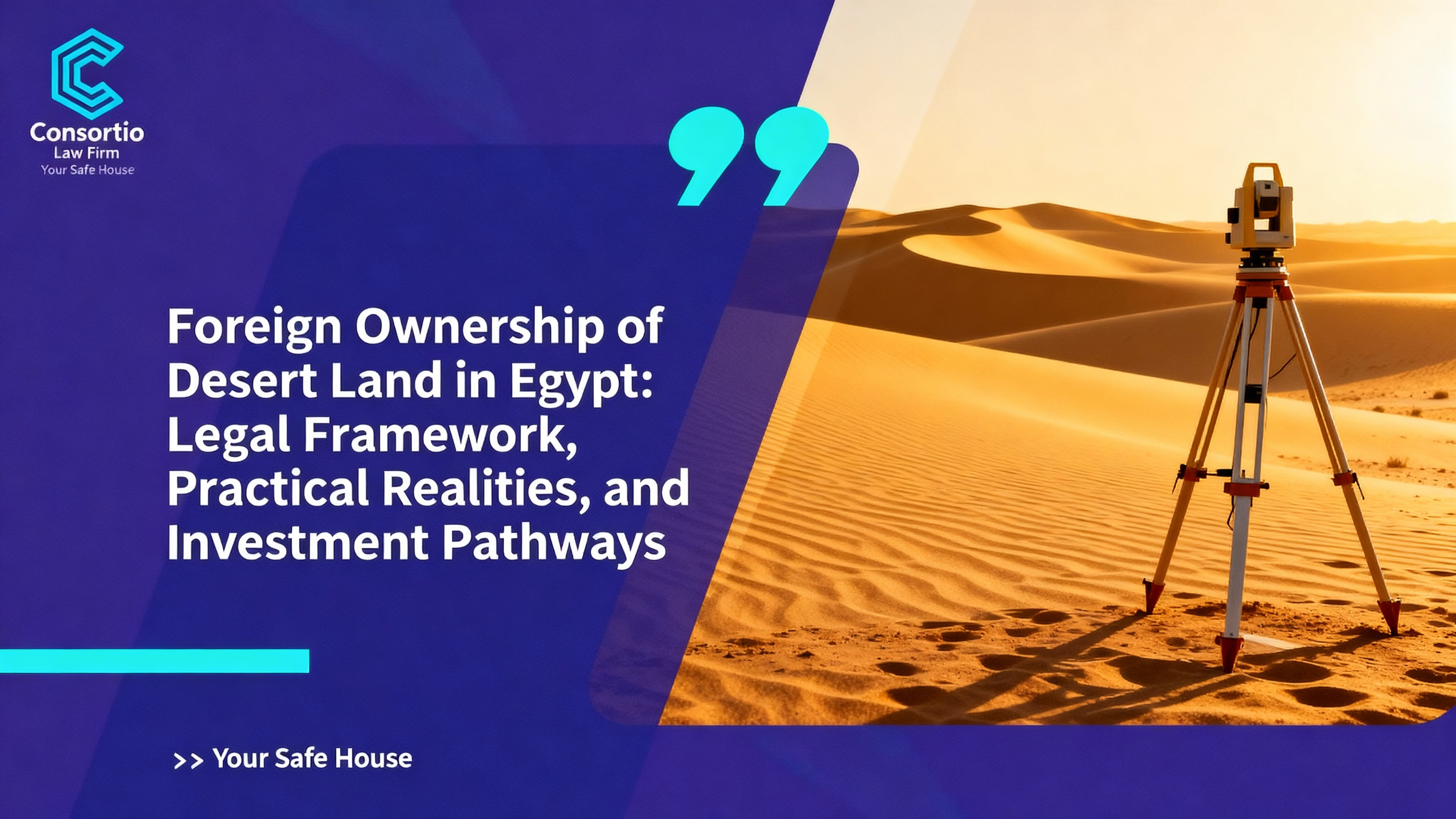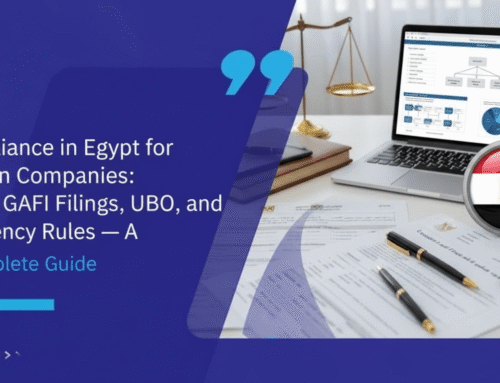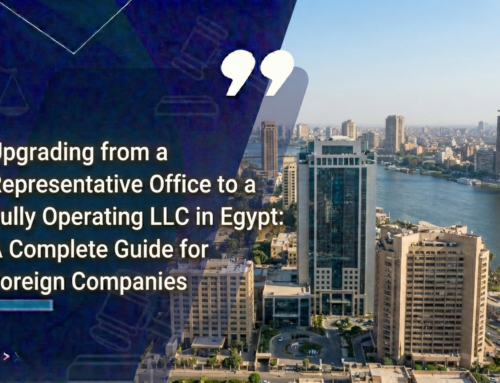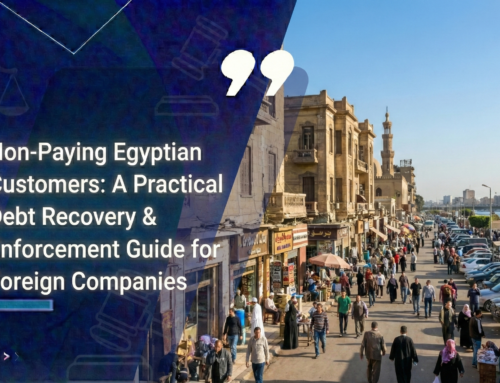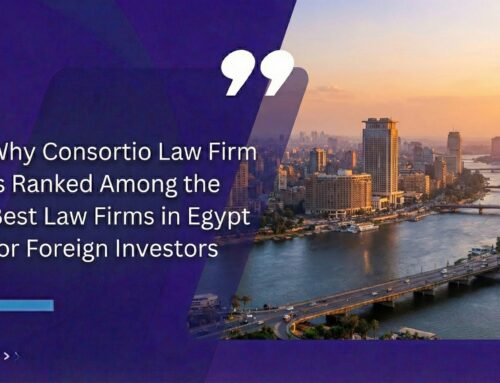Introduction: Renewed Interest in Egypt’s Desert Land
Egypt’s vast desert territories have become a magnet for investors pursuing large-scale agricultural and sustainable-development projects. As the state expands its reclamation initiatives, a recurring question arises: Can a foreign-owned company legally acquire or use desert land in Egypt?
Field visits to the General Authority for Reconstruction and Agricultural Development Projects (GARADP) and the General Authority for Investment and Free Zones (GAFI) reveal a system that welcomes foreign participation—provided that investment follows the pathway defined under the Investment Law No. 72 of 2017.
This article explains the governing laws, the administrative process, and the practical considerations shaping foreign investment in Egypt’s desert-land sector.
1. The Legal Foundation: Law No. 143 of 1981 on Desert Lands
Law No. 143 of 1981 (as amended by Law No. 11 of 2024) is the core legislation regulating the ownership, allocation, and use of Egypt’s desert lands—state-owned areas located more than two kilometers beyond populated boundaries.
The law entrusts GARADP with managing these lands for reclamation and agricultural development, under the supervision of the Ministry of Agriculture and in coordination with the Ministry of Defense for security zones.
Article 11 sets maximum ownership limits depending on irrigation method and ownership structure:
-
200 feddans for individuals, 300 for families.
-
10,000 feddans for cooperatives and partnerships.
-
50,000 feddans for companies.
Except where the project falls under the Investment Law, at least 51 percent of the company’s capital must be Egyptian.
However, when a project is licensed under Investment Law No. 72 of 2017, these nationality restrictions no longer apply—opening the door to full foreign ownership through the investment regime.
2. The Investment Law Route: A Statutory Gateway for Foreign Ownership
The Investment Law of 2017 and its Executive Regulations (Prime Ministerial Decree No. 2310 of 2017) provide a flexible mechanism for land allocation to investment projects.
Under this framework, GAFI may coordinate directly with GARADP, governorates, and other authorities to identify and allocate land for projects licensed under the law.
Crucially, any legal form of company—limited liability, joint stock, or otherwise—may be 100 percent foreign-owned if incorporated under the Investment Law.
This system reflects Egypt’s modern approach: maintaining sovereign oversight of strategic territories while channeling private capital and expertise into national-priority sectors such as agriculture, logistics, and renewable energy.
3. Institutional Roles: GARADP and GAFI
While both authorities are involved, their mandates differ:
-
GARADP is the landholder and technical agency responsible for planning, surveying, and approving reclamation zones.
-
GAFI acts as the investment facilitator, receiving investor requests, verifying compliance with the Investment Law, and coordinating allocations through its Land Use Department.
Foreign investors therefore begin the process with GAFI, not directly with GARADP.
GARADP becomes involved once GAFI submits an official request for allocation after confirming that the project qualifies as an Investment Law project.
This coordination ensures that land development proceeds within Egypt’s broader economic-planning framework.
4. The Allocation Process: From Application to Final Approval
The practical pathway for investors seeking desert land under the Investment Law involves seven main stages:
-
Application Submission
The investor—or its legal representative—files a request to GAFI’s Land Use Department, attaching:-
A feasibility study from an accredited consultant.
-
A layout plan showing proposed land utilization.
-
Proof of technical experience or similar projects.
-
-
Inter-Agency Coordination
GAFI circulates the request to GARADP, relevant governorates, and other authorities to locate suitable land. -
Land Identification and Inspection
When potential plots are identified, GAFI arranges site visits so the investor can assess area, irrigation availability, and infrastructure. -
Financial Capability Verification
The investor must demonstrate liquid resources equal to at least 30 percent of total project cost, usually via certified bank statements. -
Committee Review and Decision
GAFI’s Allocation Committee reviews the proposal. If the project meets direct-allocation criteria, a preliminary approval is granted; otherwise, the investor may join public tenders organized by the competent authority. -
Final Approval
Once approved, GAFI issues a provisional allocation letter enabling incorporation (if pending), environmental clearance, and technical permitting. -
Land Contract Execution
The land is granted under an investment license or allocation contract consistent with the ownership and management structure stated in the approved application.
Any deviation from that structure can nullify the allocation.
A service fee of EGP 5,005 is payable upon issuance of the allocation letter; no fee is due at initial submission.
5. Practical Realities and Field Insights
Although the legislative framework is clear, implementation requires navigating multiple authorities.
GARADP retains jurisdiction over agricultural land, yet GAFI functions as the single coordination window for Investment Law projects.
Key practical takeaways include:
-
Start with GAFI. Foreign investors should initiate their applications there; direct dealings with GARADP apply mainly to Egyptian individuals or non-investment projects.
-
Legal form flexibility. The company may be an LLC, joint stock, or other form—as long as it is registered under the Investment Law.
-
Modern irrigation requirement. Both laws require drip or sprinkler irrigation systems for reclamation projects.
-
Consistency of records. The company’s final incorporation documents must match the ownership and management disclosed in the application.
This cooperative structure has made desert-land investment more transparent while supporting Egypt’s environmental-efficiency agenda.
6. Ownership Framework for Foreign Investors
Foreign investors may obtain rights over desert land through allocation or ownership under the Investment Law, rather than direct purchase outside its scope.
In all cases, the state retains ownership until the investor meets the project’s development obligations and adheres to its approved purpose.
The legal framework focuses on productive use over speculation:
land must be reclaimed and cultivated using modern irrigation systems, and any deviation from the approved project purpose may trigger revocation of allocation.
This ensures that desert-land policy supports genuine reclamation, food-security goals, and environmentally responsible investment rather than passive landholding.
7. National Policy: Balancing Sovereignty and Investment
Egypt’s desert-land policy seeks equilibrium between sovereignty and investment attraction.
By differentiating between general reclamation projects (Law 143/1981) and investment-licensed projects (Law 72/2017), Egypt maintains a dual-track system:
-
Track 1 – Desert Land Regime: Egyptian individuals, cooperatives, or majority-Egyptian companies acquire or lease land directly from GARADP for reclamation.
-
Track 2 – Investment Regime: GAFI facilitates land allocation for projects licensed under the Investment Law, allowing full or majority-foreign ownership tied to modern-irrigation standards.
This design preserves national control over strategic resources while inviting global capital and expertise to advance Egypt’s agricultural and environmental objectives.
8. Strategic Recommendations for Investors
For smooth project execution, investors should:
-
Begin with GAFI’s Land Use Department to confirm eligibility and initiate coordination with GARADP.
-
Ensure incorporation under the Investment Law—the decisive condition for foreign ownership.
-
Commission a credible feasibility study from an approved consultancy.
-
Integrate modern-irrigation designs into technical documents.
-
Maintain ownership consistency between application and final registration.
-
Evaluate long-term allocation contracts that guarantee operational stability.
-
Engage early legal counsel to navigate inter-agency procedures efficiently and prevent administrative lapses.
Conclusion: A Structured Pathway to Sustainable Investment
Foreign participation in Egypt’s desert-land projects is both legally possible and economically encouraged—when pursued through the Investment Law pathway.
Understanding the distinction between direct transactions under GARADP and allocations coordinated through GAFI is critical to success.
By establishing a company under the Investment Law, adhering to modern-irrigation standards, and maintaining transparency throughout the allocation process, foreign investors can contribute to Egypt’s agricultural transformation while operating within a secure, well-defined legal framework.
Consortio Law Firm advises foreign investors and developers on all aspects of land acquisition, investment licensing, and regulatory compliance in Egypt.
Our team supports clients from feasibility assessment and company formation to coordination with public authorities and final land allocation—ensuring every project rests on a sound legal and sustainable foundation.
